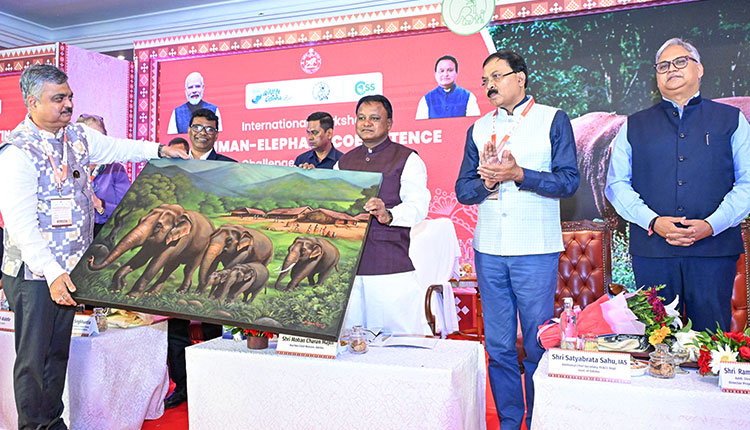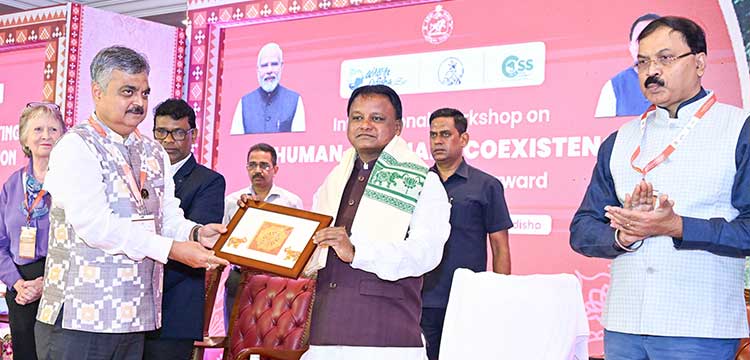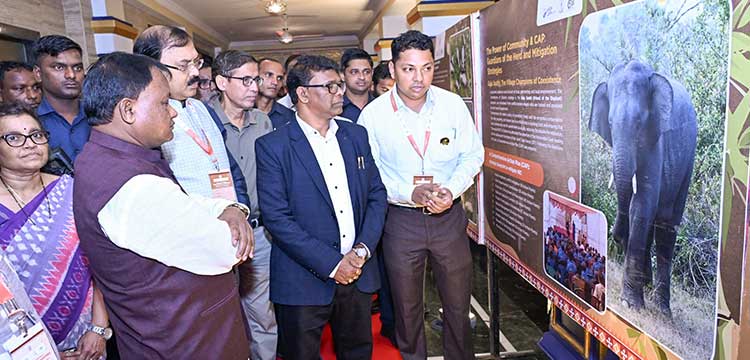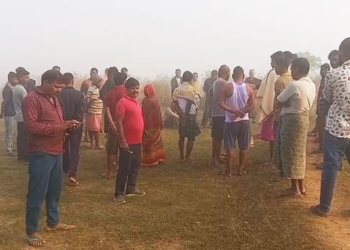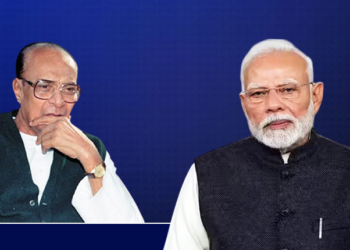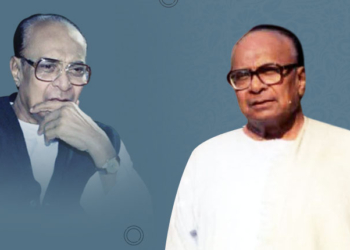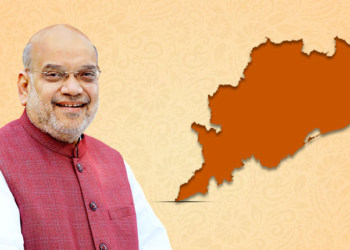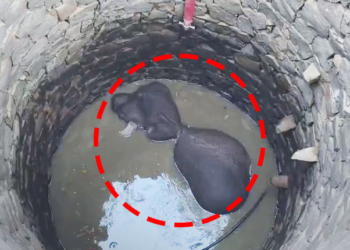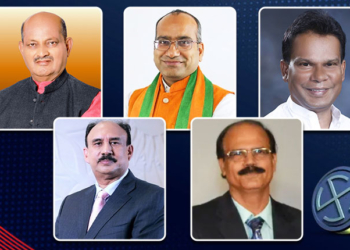Bhubaneswar: Chief Minister Mohan Charan Majhi today inaugurated an International Workshop on Best Practices in Human-Elephant Coexistence in Bhubaneswar, calling for global collaboration to ensure peaceful living between humans and elephants.
On this occasion, CM Majhi also declared that the state government is going to establish the world’s first “Center for Species Survival: Asian Elephant” at Godibari near Chandaka Wild Life Division, Bhubaneswar in collaboration with the IUCN Species Survival Commission, Wildlife Trust of India, and the Columbus Zoo and Aquarium.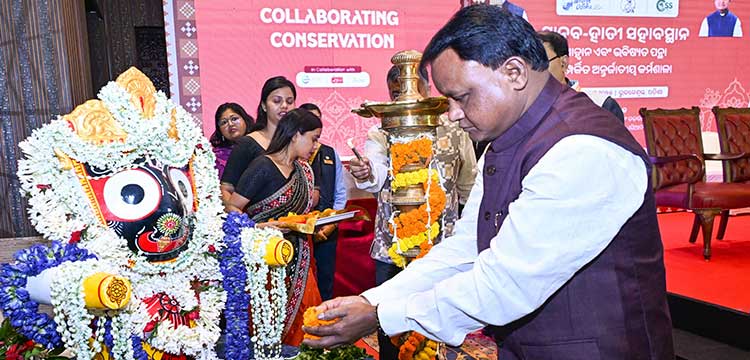
The Chief Minister said, “This centre will drive research, policy, and best practices—not just for Odisha, but for all of South and Southeast Asia. The initiative has set a new global benchmark in conservation of Asian Elephant. It will serve as a regional hub for advancing science, shaping policy and driving community action across South-East Asia for elephant conservation.”
Addressing dignitaries, delegates, and experts from India and abroad, the Chief Minister said, “In Odisha, elephants are more than animals—they are part of our identity, history, and spirituality. The elephant, as the National Heritage Animal, truly holds a special place in our hearts.”
Expansion of agriculture and infrastructure growth have been reducing traditional elephant habitats, resulting in man-elephant conflict, said the CM, expressing concern over rising conflicts due to habitat loss.
The CM also outlined Odisha’s initiatives, including mapping elephant corridors, restoring degraded forests, empowering local protection groups through Gaja Saathi and Vana Surakshya Samitis, strengthening anti-poaching squads, and using GPS collars, drones, and AI cameras for tracking elephant movement. He also highlighted Odisha’s comprehensive approach to managing this challenge by protecting elephants while safeguarding communities.
Reaffirming Odisha’s commitment, the CM said, “Our vision is to create a development model for Odisha where elephants roam freely, our forests remain healthy, and communities coexist in peace with animals. This model will inspire the rest of the world, he expressed confidence.”
The workshop brought together conservationists, researchers, policymakers, and international delegates to discuss strategies for mitigating human-elephant conflict and ensuring sustainable coexistence.
“This workshop was not just a discussion, but the beginning of a coordinated global movement where Odisha is leading from the front. The intensity of the challenge is matched only by our collective resolve. We have moved beyond merely managing conflict to actively building pathways for coexistence. The key takeaway is clear: the future of the elephant is inextricably linked to the well-being and involvement of the communities who live alongside them,” he added.
On this occasion, Minister of Forest, Environment & Climate Change, Ganesh Ram Singhkhuntia outlined the evolution of Odisha from a protection-centric approach to a holistic philosophy of coexistence to manage negative interface arising from habitat loss. Key strategies include habitat restoration, empowering local communities through various initiatives.
Earlier, the session was marked by addresses from distinguished speakers. P. K. Jha, PCCF (Wildlife), Odisha, delivered the welcome address, while Heidi Riddle, Vice Chairperson of IUCN Species Surviva, highlighted the importance of collaborative global efforts. Suresh Pant, PCCF & HoFF, Odisha, underlined state-level initiatives in elephant conservation. Adam Felts, Vice President of Animal Care, Columbus Zoo, shared international perspectives on best practices.
Ramesh Kumar Pandey, Additional Director General of Forests and Director, Project Elephant, MoEF&CC, Government of India, stressed on the role of Project Elephant in mitigating conflict and conserving habitats. Satyabrata Sahu, Additional Chief Secretary, FE&CC Department, Government of Odisha, outlined policy measures at the state level.
On the occasion, the Chief Minister released a Coffee Table Book, bibliography, and brochures, along with the screening of a short film showcasing Odisha’s efforts in elephant conservation. Dr. Manoj V Nair, CCF (Wildlife), proposed the vote of thanks.
The two-day workshop will witness technical sessions, deliberations, and experience-sharing among experts from across the globe to evolve sustainable strategies for peaceful human-elephant co-existence.




